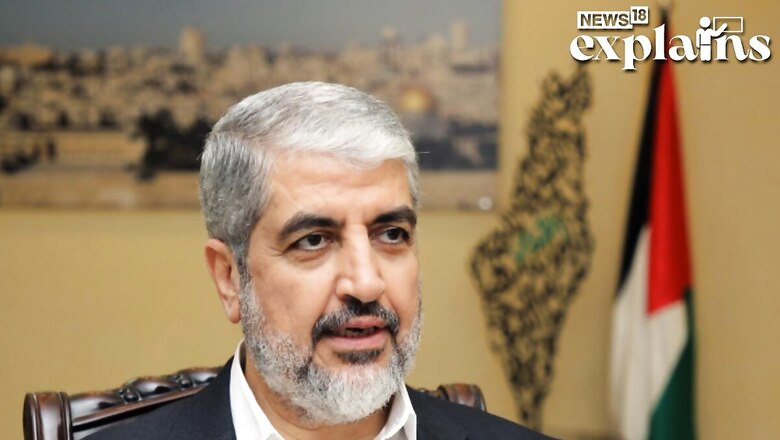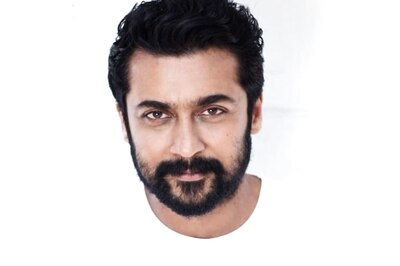
views
A pro-Palestine event in Kerala has sparked a controversy in the state after videos showed Hamas leader Khaled Mashal virtually participating in the protest rally.
Kerala BJP chief K Surendran shared a poster displaying Mashal’s participation in the event, organised by the Solidarity Youth Movement, the youth wing of Jamaat-e-Islami in Malappuram and sought investigation into the incident.
“Terrorist leaders of Hamas themselves take part in events (in the state). It was virtual participation only because he didn’t obtain a visa. The organisers’ intentions were evident,” Surendran said.
However, Suhaib CT, state president of the Solidarity Youth Movement, downplaying the virtual participation of the Hamas leader said that the Palestinian armed group is not an organisation that is operational in India or a banned outfit law.
“He took part in our programme organised to express solidarity with the Palestinian people and to condemn the onslaught by Israel. No need to see anything unusual in that,” he told PTI.
Amid the row over the event and the participation of Hamas leader, here is all you need to know about whether Hamas is designated a terror organisation in India and what is New Delhi’s foreign policy on the Israel-Palestine issue.
Who is Hamas leader Khaled Mashal?
Khaled Mashal, born in the West Bank in 1956, is considered one of the founders of Hamas. He has also been the former head of the Palestinian militant organization Hamas and he was the chairman of the armed group till 2017.
Khaled Mashal became Hamas’s political leader in exile in 2004 and currently lives in Qatar. He visited the Gaza Strip for the first time in 2012, where he was received by Palestinian officials and a huge crowd, according to BBC.
Why is Hamas Not Designated a Terrorist Group?
While India condemned the Hamas attack on 7 October and expressed solidarity with Israel, it has not designated Hamas a terrorist organisation.
India maintains a zero-tolerance policy towards terrorism. New Delhi designates a group as a terrorist organisation under the Unlawful Activities (Prevention) Act (UAPA).
As of March 2023, there are a total of 44 designated terrorist organisations under the First Schedule of the Act, including terrorist groups that once operated from Punjab, Kashmir, Northeast. ISIS was the last transnational organisation added to the list in 2015. However, the list does not include Hamas.
According to a report in ORF, the UAPA has very “localised requirements” for terror groups to be added to its terrorism listing, which includes having activities like operations, finances, and recruitment within the Indian territories.
Moreover, banning a group like Hamas is much more complex. Long before taking the extreme route this October, Hamas made a move towards a more “centrist” positioning in 2017, where it separated from the ideology of the Muslim Brotherhood and even propagated human rights through its outreach programme.
Hamas is already designated as a terrorist organisation by countries and international organisations including the United States, the United Kingdom, Australia, Japan and the European Union.
India’s Position on Israel-Palestine Issue
India has always played an active role in extending support for the Palestinian cause, which is also an integral part of the nation’s foreign policy. In 1974, India became the first Non-Arab State to recognize Palestine Liberation Organization (PLO) and in 1988 one of the first countries to recognize the State of Palestine. New Delhi also opened its Representative Office to Palestine in Gaza City in 1996, which was later shifted to Ramallah in 2003, as per the government statement.
India’s position until 2017 was that it supported “the Palestinian cause and called for a negotiated solution resulting in a sovereign, independent, viable and united State of Palestine, with East Jerusalem as its capital”.
The position was maintained by former Prime Minister Manmohan Singh and former President Pranab Mukherjee. However, India dropped the references to East Jerusalem and the borders in 2017 during Palestinian Authority President Mahmoud Abbas visit to New Delhi.
In 2018, when Prime Minister Narendra Modi visited Ramallah, he reaffirmed the same position, but without any direct reference to the borders or Jerusalem.
Experts say India’s position on the Israel-Palestine question has not changed much in the last seven decades. Jatin Kumar, Assistant Professor at Ram Lal Anand College, said India has maintained a two-state solution on the issue and there is “no alteration made on this part.”
“India is not changing its position with regard to the Israel-Palestine issue. If you take a look, India, since 1948, is maintaining its position on the two-state solution,” Jatin Kumar told News18.com.
“If you look at India’s position in international organisations like the UN and other platforms, I don’t think it has changed today, even in the ongoing war,” he added.




















Comments
0 comment